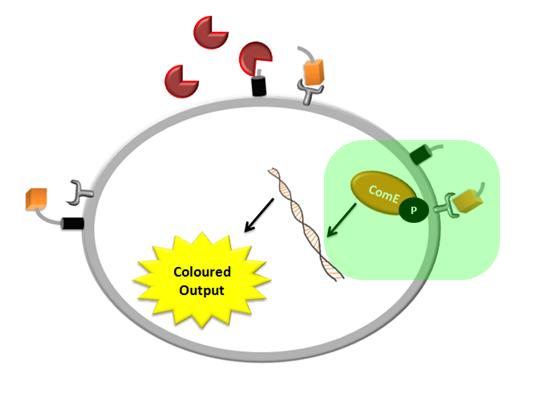Team:Imperial College London/Modelling/Signalling/Objectives
From 2010.igem.org
(Difference between revisions)
(fix menu space) |
m |
||
| (6 intermediate revisions not shown) | |||
| Line 1: | Line 1: | ||
{{:Team:Imperial_College_London/Templates/Header}} | {{:Team:Imperial_College_London/Templates/Header}} | ||
| - | {{:Team:Imperial_College_London/Templates/ | + | {{:Team:Imperial_College_London/Templates/ModellingHeaderS}} |
{{:Team:Imperial_College_London/Templates/ModellingSignallingHeader}} | {{:Team:Imperial_College_London/Templates/ModellingSignallingHeader}} | ||
{| style="width:900px;background:#f5f5f5;text-align:justify;font-family: helvetica, arial, sans-serif;color:#555555;margin-top:5px;" cellspacing="20" | {| style="width:900px;background:#f5f5f5;text-align:justify;font-family: helvetica, arial, sans-serif;color:#555555;margin-top:5px;" cellspacing="20" | ||
|style="font-family: helvetica, arial, sans-serif;font-size:2em;color:#ea8828;"|Objectives | |style="font-family: helvetica, arial, sans-serif;font-size:2em;color:#ea8828;"|Objectives | ||
|- | |- | ||
| - | |We want to model the | + | |We want to model the Signaling Module to find out whether the signaling pathway works as anticipated. Modelling receptors involves a lot of detailed knowledge of how the receptors function. However, the details of how our ComD receptor works have not been studied yet, which makes it impossible for us to model our system accurately. Therefore, we will try to implement a much simpler model, which means that a lot of assumptions have to be made. |
| + | <div ALIGN=CENTER> | ||
| + | {| style="width:404px;background:#e7e7e7;text-align:center;font-family: helvetica, arial, sans-serif;color:#555555;margin- top:5px;padding: 2px;" cellspacing="5"; | ||
| + | |- | ||
| + | |[[Image:IC_Overview_Signalling1.jpg|400px]] | ||
| + | |- | ||
| + | |The green shadow indicates which part of the whole system this model simulates. It mainly includes the transduction pathway between the receptor and the genes. | ||
| + | |} | ||
| + | </div> | ||
| + | |- | ||
| + | |style="font-family: helvetica, arial, sans-serif;font-size:2em;color:#ea8828;" align="right"|[[Team:Imperial_College_London/Modelling/Signalling/Detailed_Description | Click here for a detailed description of this model...]] | ||
|} | |} | ||
Latest revision as of 03:23, 28 October 2010
| Modelling | Overview | Detection Model | Signaling Model | Fast Response Model | Interactions |
| A major part of the project consisted of modelling each module. This enabled us to decide which ideas we should implement. Look at the Fast Response page for a great example of how modelling has made a major impact on our design! | |
| Objectives | Description | Results | Constants | MATLAB Code |
| Objectives |
| We want to model the Signaling Module to find out whether the signaling pathway works as anticipated. Modelling receptors involves a lot of detailed knowledge of how the receptors function. However, the details of how our ComD receptor works have not been studied yet, which makes it impossible for us to model our system accurately. Therefore, we will try to implement a much simpler model, which means that a lot of assumptions have to be made. |
| Click here for a detailed description of this model... |
 "
"




